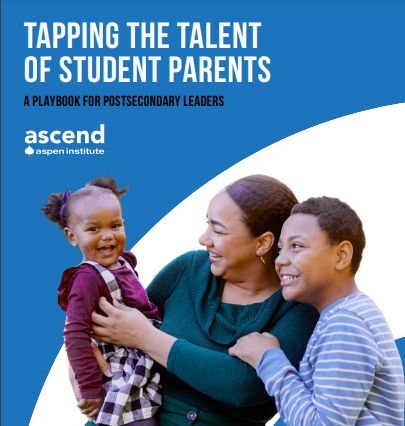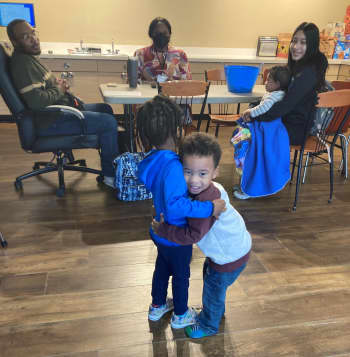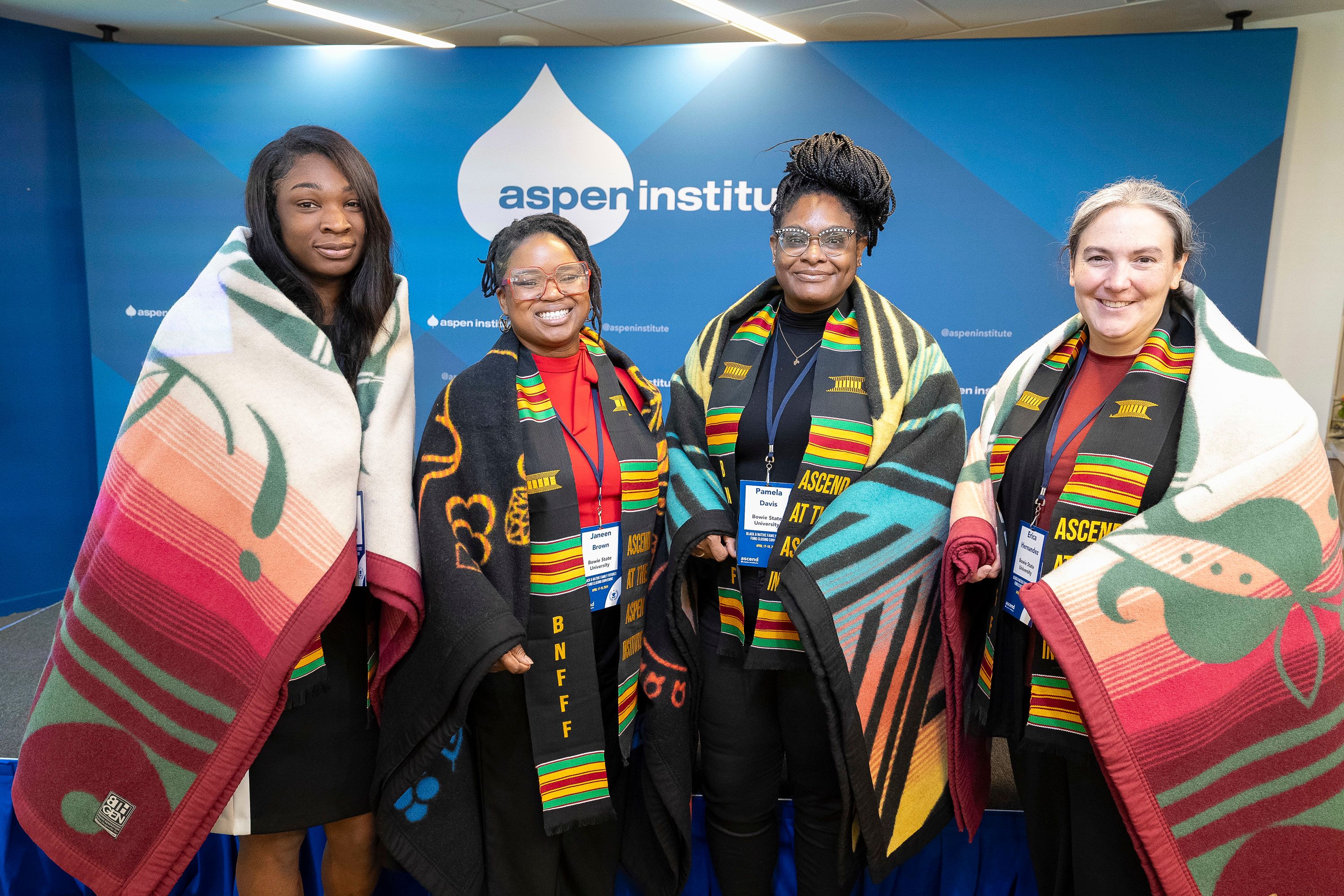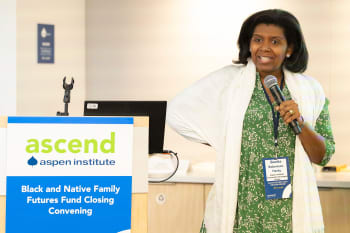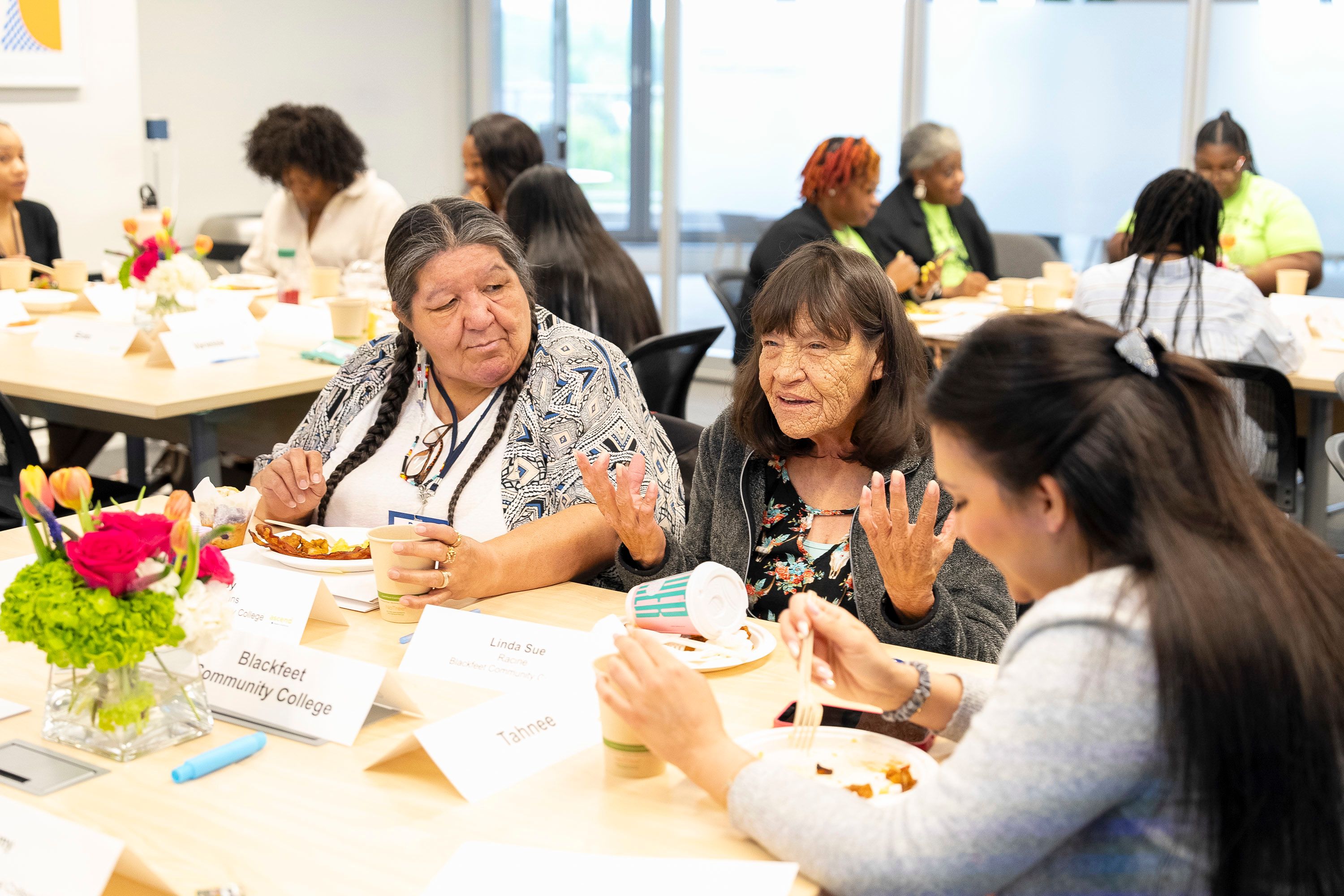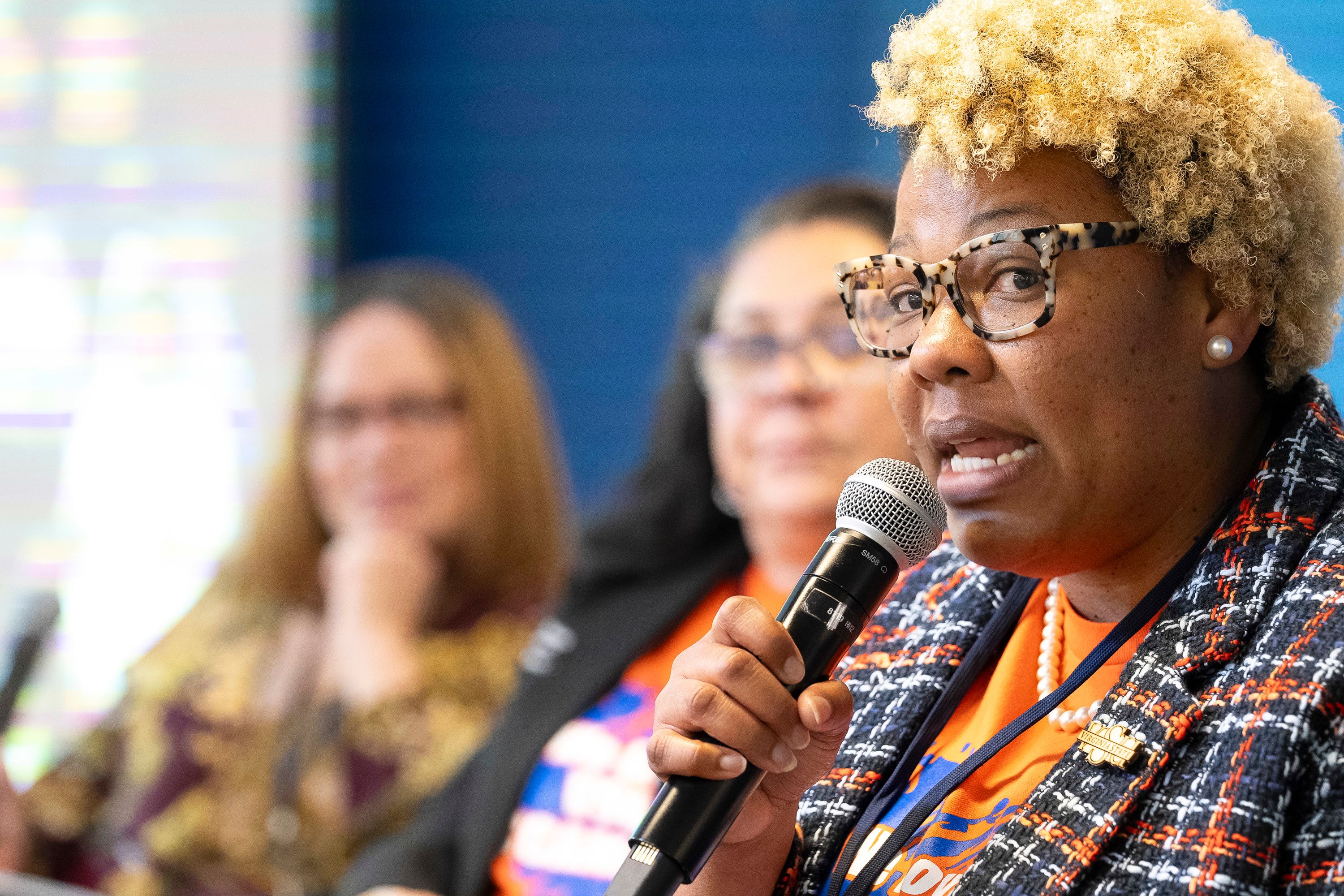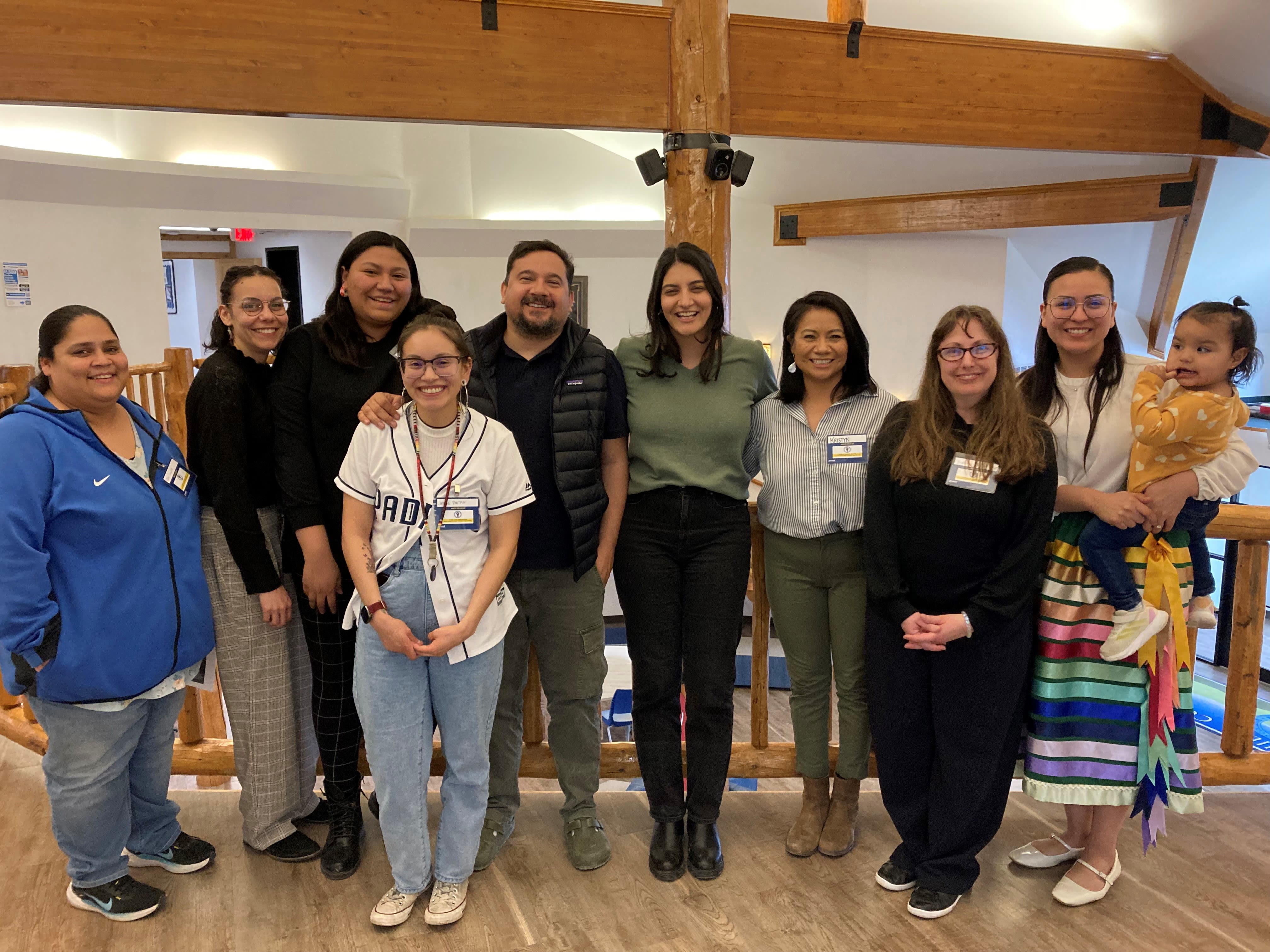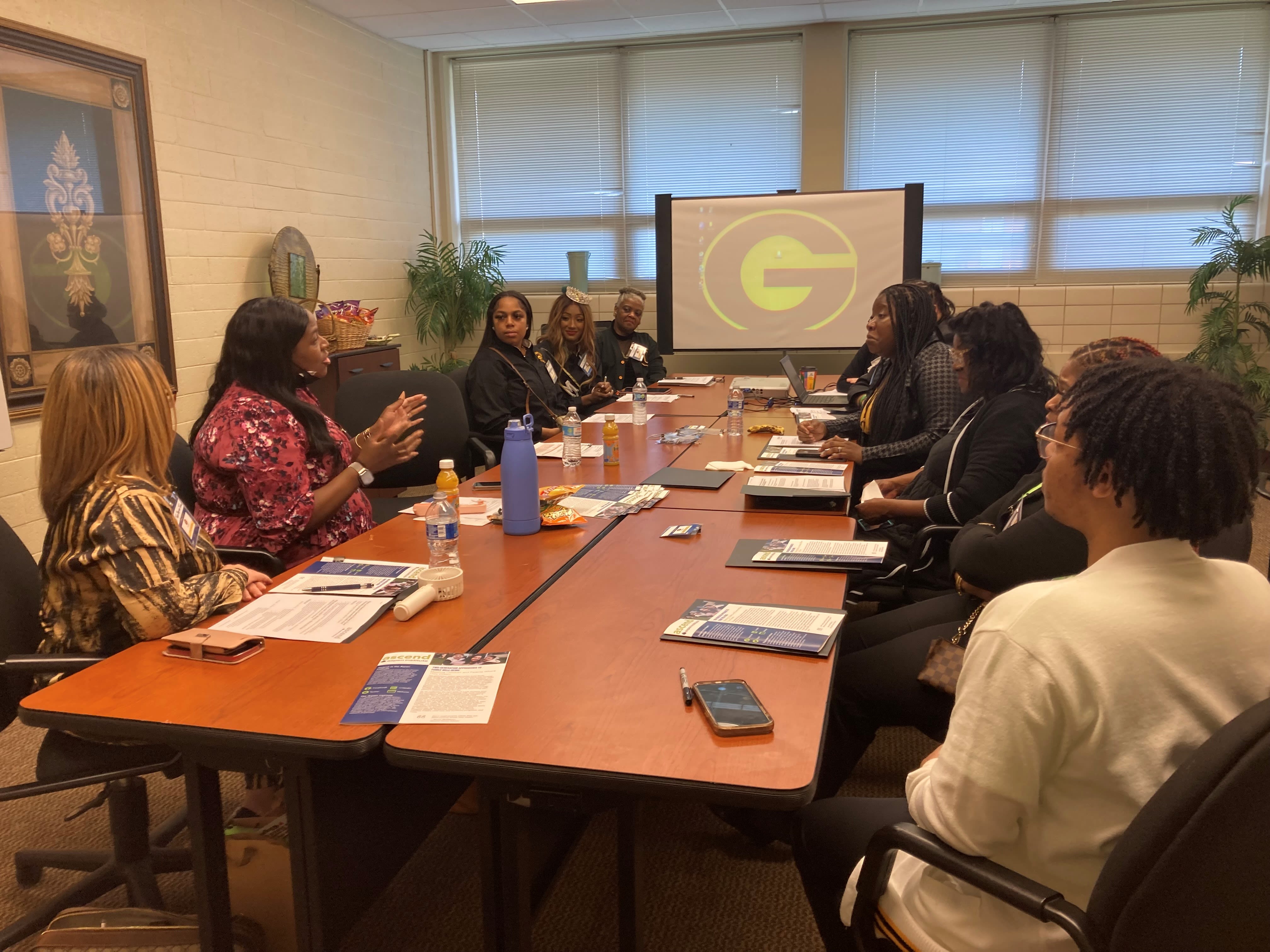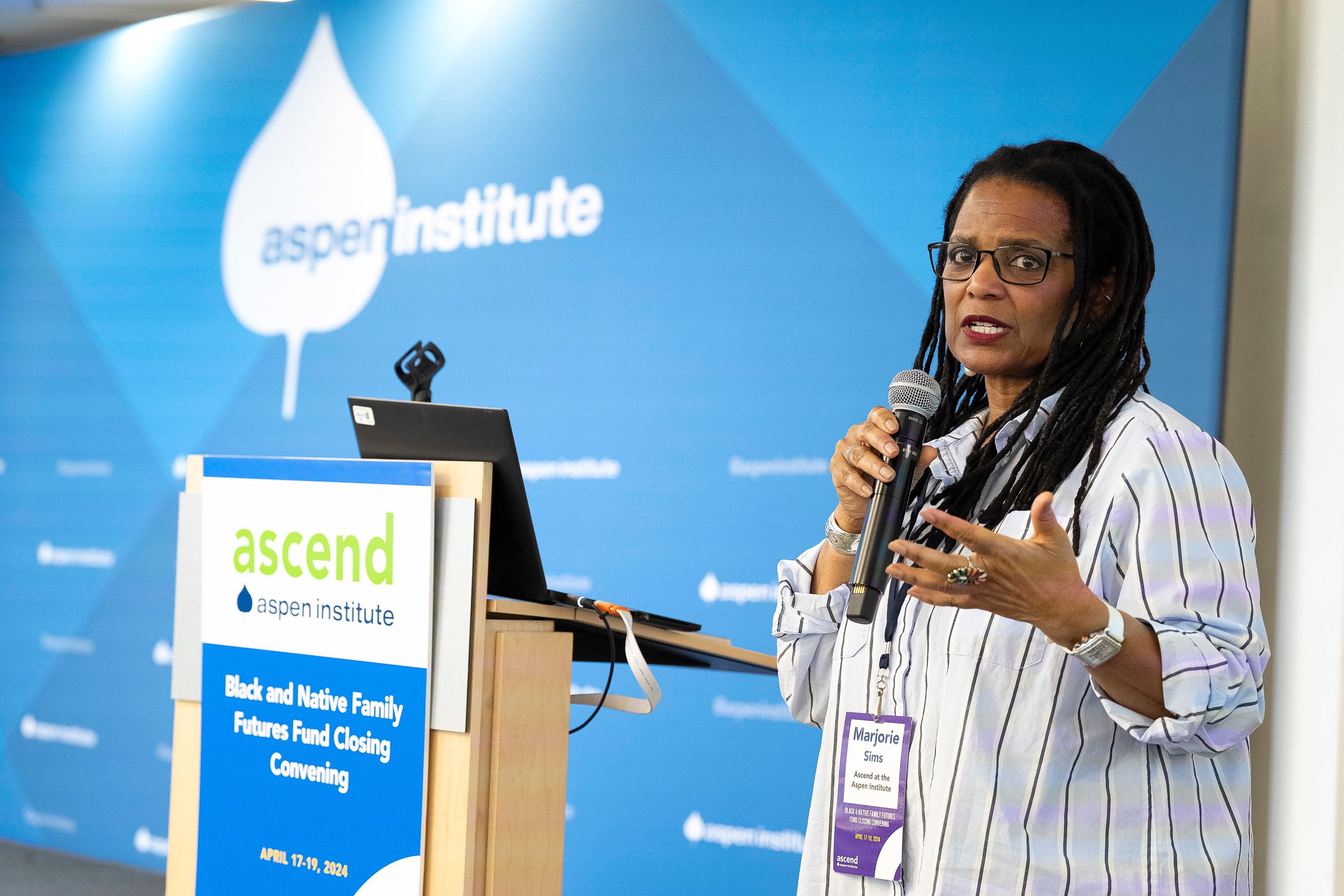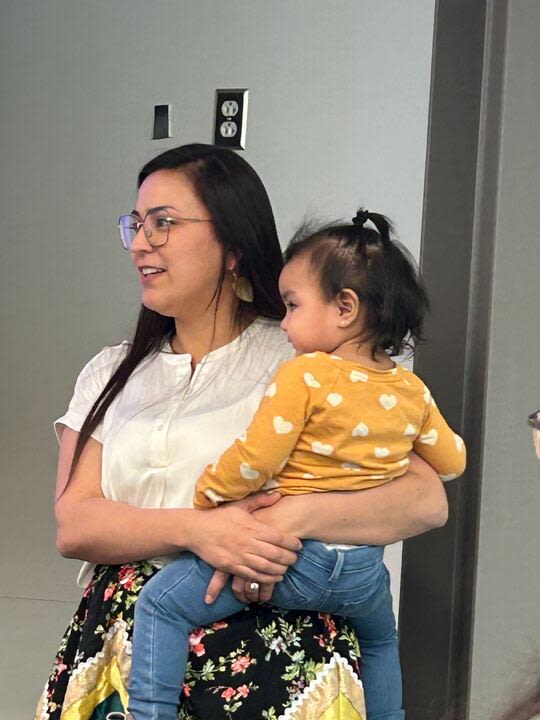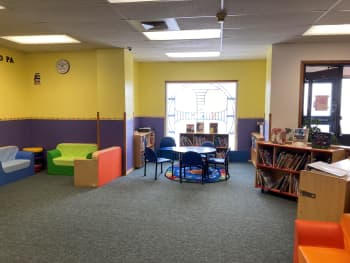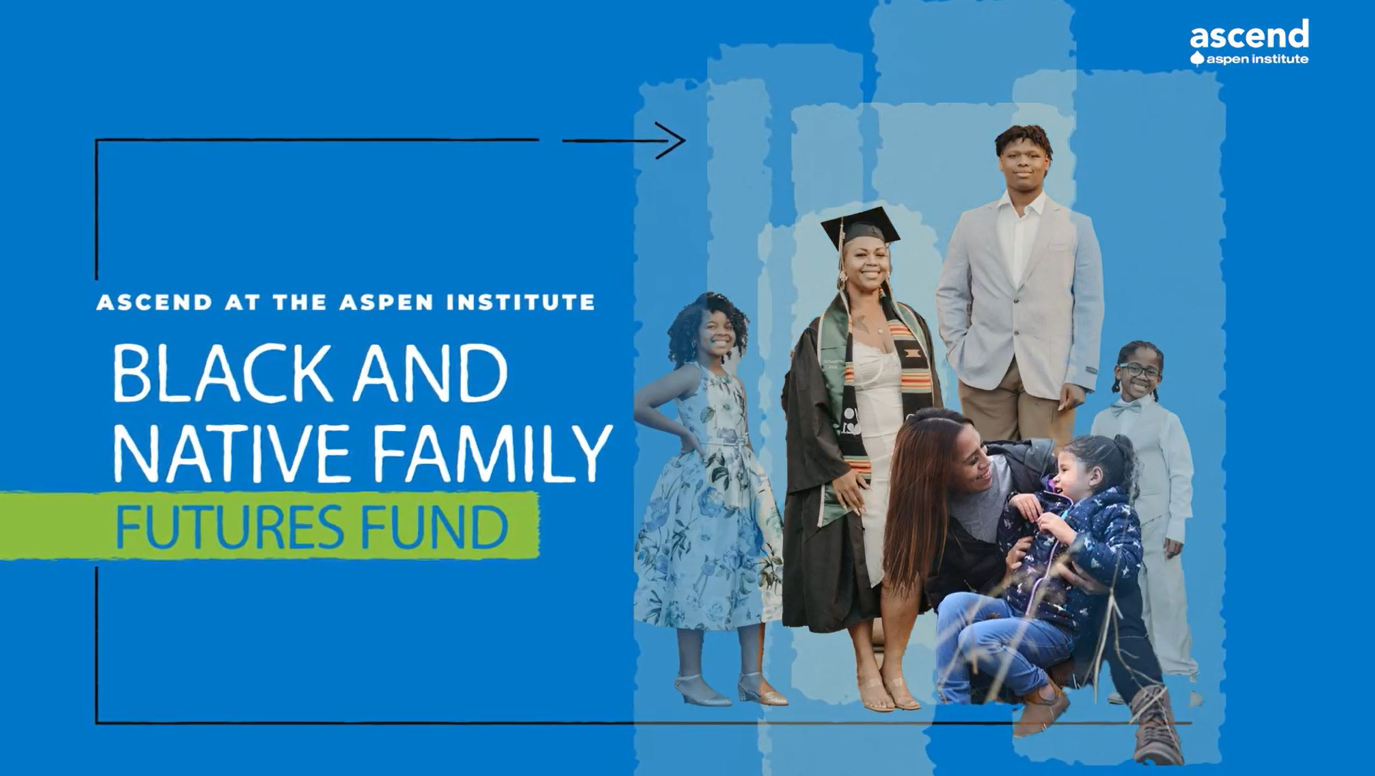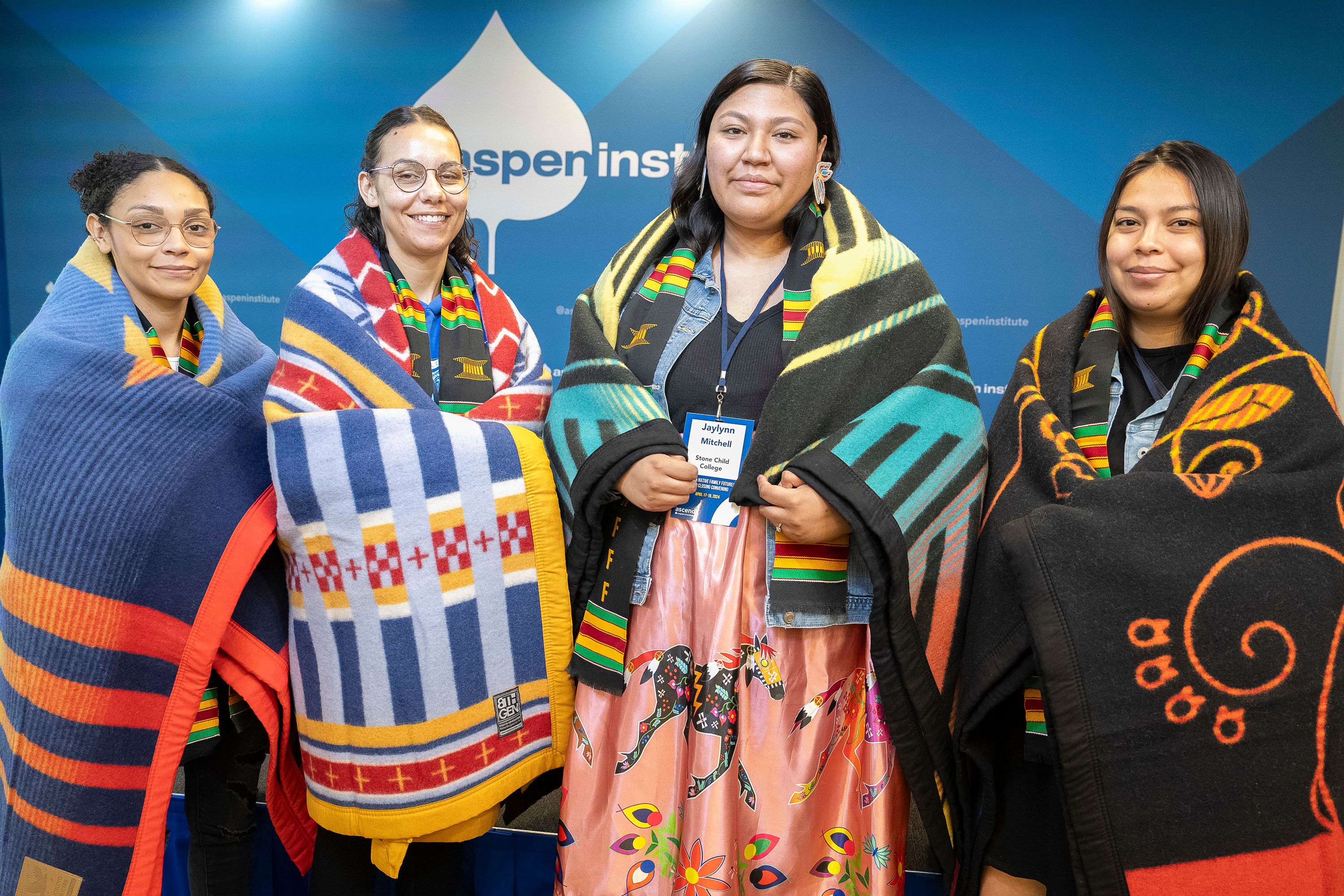Black and Native Family Futures Fund
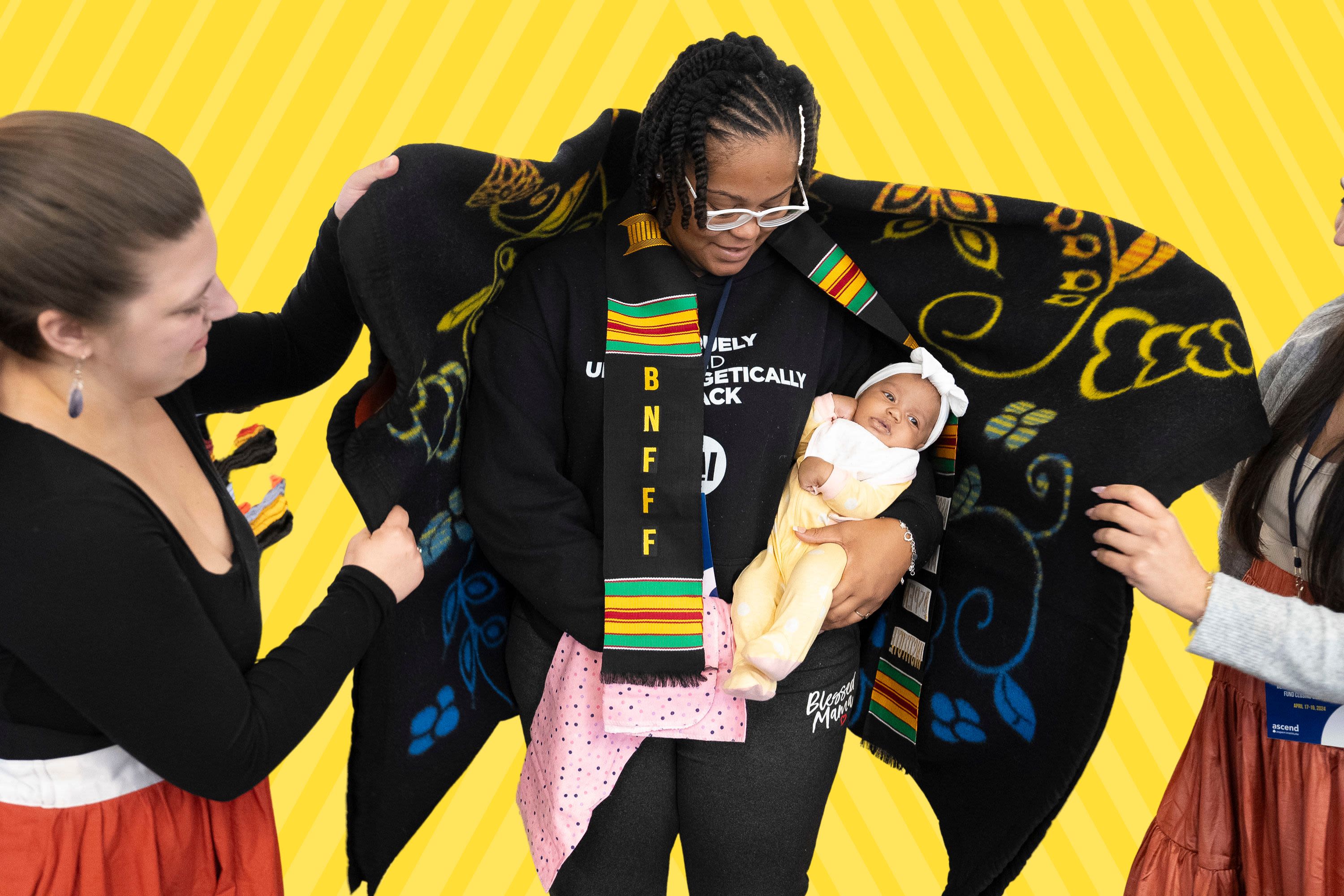
Black and Native postsecondary students parent at higher rates than their peers and bring with them a wealth of knowledge, skills, and aspirations. Yet our postsecondary system was not designed to bolster student parents’ many strengths. Further, student parents from marginalized communities face systemic racism and historical trauma in addition to challenges like financial insecurity and time poverty.
Historically Black Colleges and Universities (HBCUs) and Tribal Colleges and Universities (TCUs) are uniquely positioned to catalyze the systemic change needed to better support Black and Native student parents. With this in mind, Ascend created the Black and Native Family Futures Fund to increase access and success for parenting students at HBCUs and TCUs. Partners received funding and technical assistance to support student parents. The Fund was designed to apply the promising practices outlined in Tapping the Talent of Student Parents: A Playbook for Postsecondary Leaders.
Ascend partnered with eight colleges across seven states.
“For me, personally, I told myself instantly when I was pregnant, ‘A baby shouldn't stop me from reaching my goals in life.’ It’s definitely motivated me more knowing that I can find security in higher education.”
Student Parent Focus Group Participant
Outcomes at Partner Institutions
Through their work with Ascend, partners reported that their institutions moved towards addressing the needs of student parents.
- Eight added or increased basic needs support.
- Seven created family-friendly spaces on campus.
- Six introduced community-building activities for student parents.
- Five added or increased child care support.
- Three hired staff.
Key Takeaways
What Existing Strengths Can Be Leveraged?
What Do Student Parents Need in the Here and Now?
What Do Colleges and Universities Need to Support Student Parents?
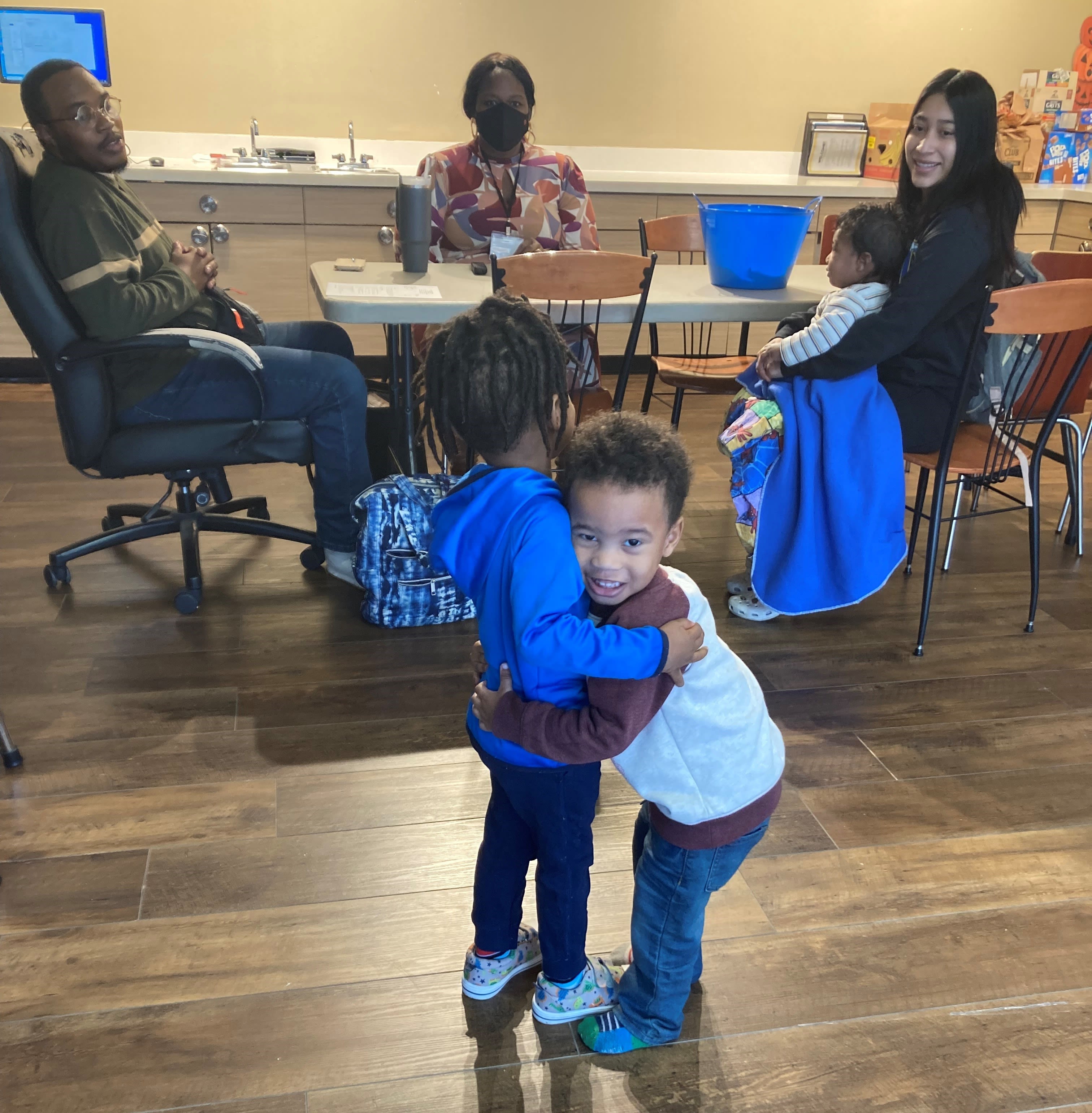
Outcomes at Partner Institutions
Through their work with Ascend, partners reported that their institutions moved towards addressing the needs of student parents.
- Eight added or increased basic needs support
- Seven created family-friendly spaces on campus
- Six introduced community-building activities for student parents
- Five added or increased child care support
- Three hired staff
Key Takeaways
What Existing Strengths Can Be Leveraged?
What Do Student Parents Need in the Here and Now?
What Do Colleges and Universities Need to Support Student Parents?
The Promising Practices
Key findings from the Fund align with the promising practices outlined in Tapping the Talent of Student Parents: A Playbook for Postsecondary Leaders.
- Promising Practice 1 – Data – Identify, collect, and analyze data on student parents to understand who they are and what would support their success.
- Promising Practice 2 – Voices – Recognize student parent expertise as an essential part of co-creating solutions and strengthening connections on campus.
- Promising Practice 3 – Communications – Refine messaging and communications to be inclusive of and welcoming to student parents.
- Promising Practice 4 – Spaces – Identify and create family-friendly spaces on campus where student parents can be both students and parents.
- Promising Practice 5 – Services – Provide new, expanded, or targeted supports, services, and facilities for student parents on and off campus to advance their academic success.
Bowie State University Task Force members attending the closing convening (© The Aspen Institute: Photo by Stephen Jaffe).
Bowie State University Task Force members attending the closing convening (© The Aspen Institute: Photo by Stephen Jaffe).
The Scaffolding
Findings from the Fund also align with the elements, or scaffolding, that must be in place to build a structure of sustainable growth.
- Leadership - Work with top leadership to break down silos and make supporting student parents an institutional priority.
- Centralized responsibility - Create a committee or task force comprising multiple departments to secure cross-campus commitment.
- Family-friendly policies - Review and revise institutional policies related to student parents, including policies on minors on campus.
- Faculty - Engage faculty in student parent efforts to create inclusive and supportive classrooms.
- Identification of early data - Collect data on student parent demographics in the short term to generate buy-in from internal and external audiences and lay a foundation for future action.
- Existing resources - Start with existing resources, such as staff time and internal changes, to quickly begin increasing student parent supports.
- New resources - After using existing resources and collecting data on initial successes, reach out for new funding, partnerships, and resources, and make the case for additional internal resources or staff to sustain efforts.
- External partnerships - Leverage external partnerships, including philanthropic partners, community-based organizations, early childhood education providers, government agencies, and employers, to help maximize impact, expand the network of champions, and develop relationships that keep partners accountable for progress.
Fostering Relationships
The Fund included several opportunities for collaboration and learning among the institutions. Ascend hosted a kick-off meeting; in-person and virtual convenings; site visits; and cohort meetings. This cross-site engagement facilitated idea sharing and complemented one-on-one technical assistance. Based on the partners’ desire to connect and collaborate, we will provide more of these opportunities in future funds.
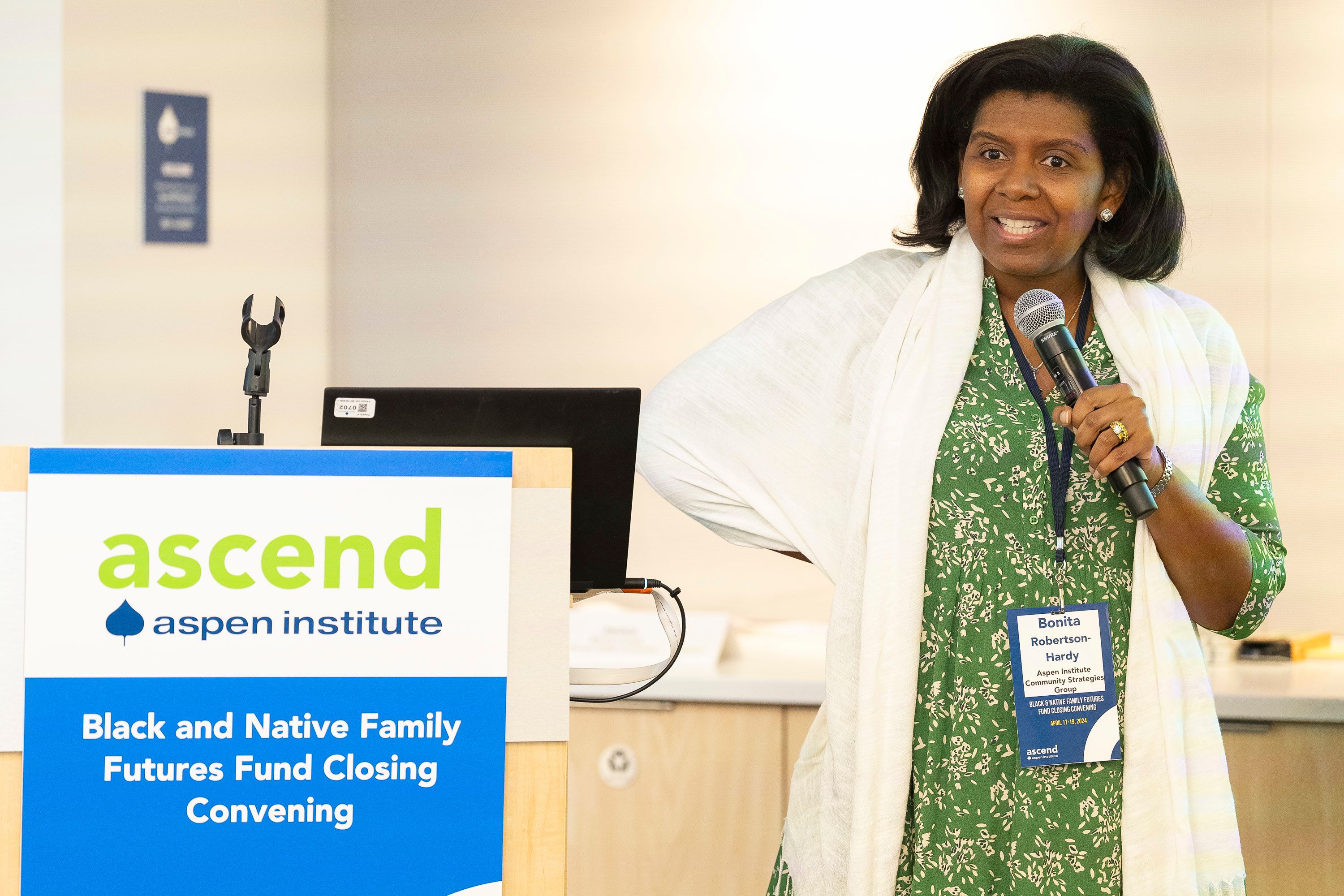
Fostering Relationships
The Fund included several opportunities for collaboration and learning among the institutions. Ascend hosted a kick-off meeting; in-person and virtual convenings; site visits; and cohort meetings. This cross-site engagement facilitated idea sharing and complemented one-on-one technical assistance. Based on the partners’ desire to connect and collaborate, we will provide more of these opportunities in future funds.
Student Services Counselor Linda Sue Racine and student grandparent Patsy Cross Guns sit with colleagues from Blackfeet Community College at the closing convening (© The Aspen Institute: Photo by Stephen Jaffe).
Student Services Counselor Linda Sue Racine and student grandparent Patsy Cross Guns sit with colleagues from Blackfeet Community College at the closing convening (© The Aspen Institute: Photo by Stephen Jaffe).
Virginia State University CCAMPIS Director Tamekia Johnson-Dover speaks on a panel during the closing convening (© The Aspen Institute: Photo by Stephen Jaffe).
Virginia State University CCAMPIS Director Tamekia Johnson-Dover speaks on a panel during the closing convening (© The Aspen Institute: Photo by Stephen Jaffe).
Ascend, Center for Native American Youth, and James Bell Associates staff with members of the Stone Child Community College Task Force during a site visit.
Ascend, Center for Native American Youth, and James Bell Associates staff with members of the Stone Child Community College Task Force during a site visit.
Grambling State University Task Force members and students gather during a site visit.
Grambling State University Task Force members and students gather during a site visit.
Ascend Managing Director Marjorie Sims speaks during the closing convening (© The Aspen Institute: Photo by Stephen Jaffe).
Ascend Managing Director Marjorie Sims speaks during the closing convening (© The Aspen Institute: Photo by Stephen Jaffe).
Center for Native American Youth Associate Director of Youth Programs Cheyenne Brady with her daughter at the Stone Child College site visit.
Center for Native American Youth Associate Director of Youth Programs Cheyenne Brady with her daughter at the Stone Child College site visit.
“I learned that our student parents are very resilient. They have the drive to be successful. What we as a college have to realize is they do need support, and this is where we come in.”
Task Force Focus Group Participant
Changing Policy and Practice
Each college and university that participated in the Fund took specific actions to build more student parent supports on their campuses. Ascend understands that HBCUs and TCUs are not monolithic, and the supports needed at one campus may differ from what’s needed somewhere else.
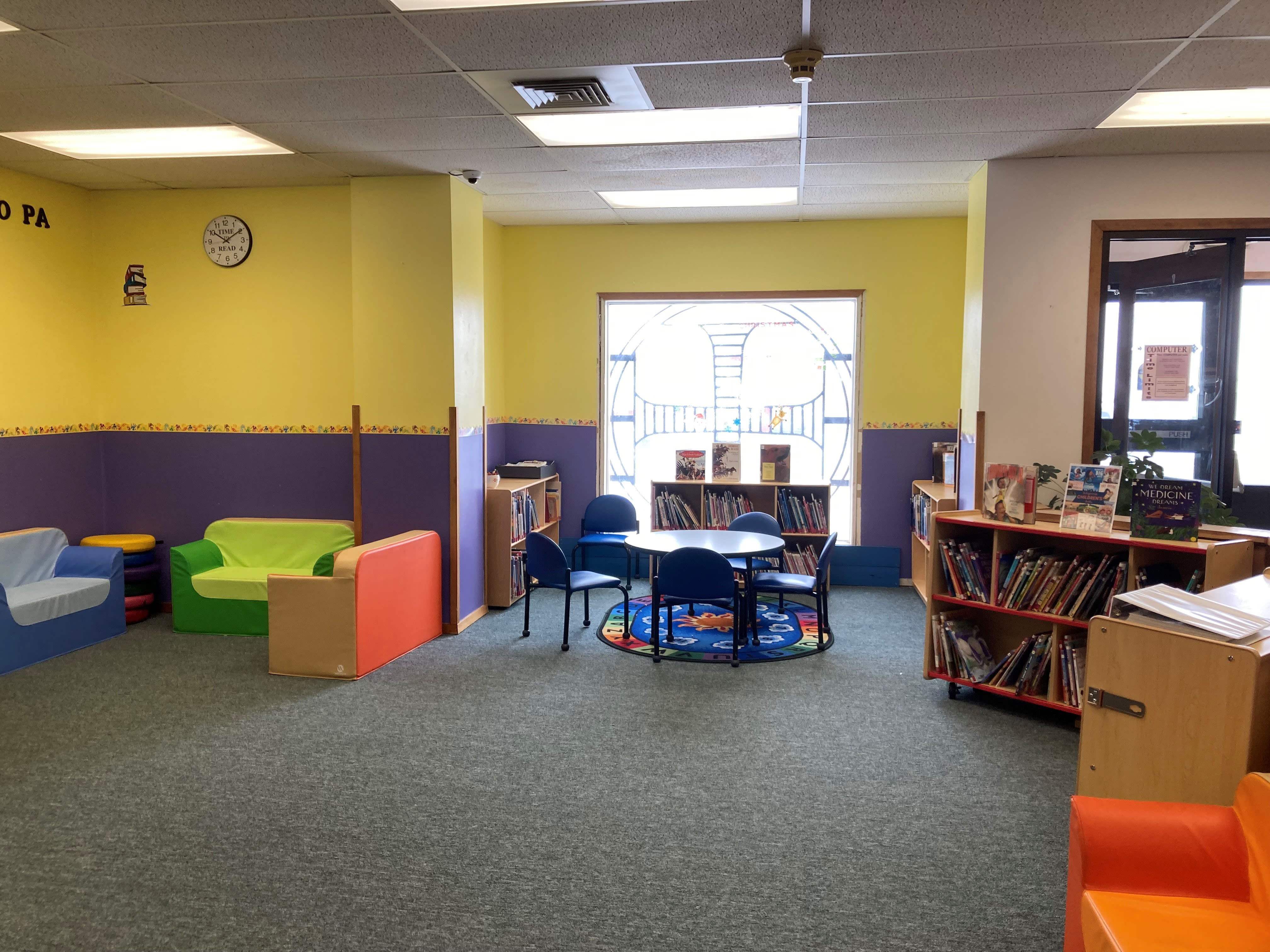
Blackfeet Community College
“We have a lot of single parents, not only mothers, but also fathers. We worked on a lot of mental health issues. It’s my belief that if you don’t feel good about who you are as a parent and as a student — if you don’t take care of yourself — you’re not going to be able to succeed.”
- Linda Sue Racine, Student Services Counselor -
Bowie State University
“I really hope that within not only this project at Bowie State University, but across all the campuses, student parents understand that they're not only wanted but they're also needed and play pivotal roles at institutions across the country.”
- Sydney Barnes, Student Parent -
Diné College
“I think it’s important that we first recognize students that are parents. Recognition is the first step in creating programs for them. They have their own children, they have cousins, they have nieces — so they become role models by going to college and helping to build a college-going culture across the Navajo Nation.”
- Charles M. Roessel, President -
Grambling State University
“One of the reasons why it's so important that student parents be a part of codesigning solutions is because we understand the problem. We know what challenges we face in everyday life and how hard it is being a student and trying to graduate so we can better ourselves and lead by example for our children.”
- Samantha Dimmer, Student Parent -
Jarvis Christian University
"Now here at Jarvis, we have a student parent resource center which includes formula, Pampers, clothing, and other resources that we may need in an emergency. That’s why it’s important for us as student parents to be part of codesigning solutions and making a movement here at our university, because if we don't speak up, and if we don't stand up for our needs, who will?”
- Brianna Lozano, Student Parent -
North Carolina A&T State University
“The most important institutional support would be the understanding of a professor, because it's not just me. It's me and my child at this point. It doesn’t just affect me, it affects my child, and my child has to come first.”
- Quadarius Wade, Student Parent -
Stillman College
“As we think about the work we do with student parents, we must understand that it is not only impacting the individual we’re serving, it also has the opportunity to impact their children, their extended families, as well as their greater communities.”
- Christina Gladney, Vice President of Student Affairs -
“Student parents are sacrificing a lot of time away from their children, away from their families to go to school and better themselves. It’s hard being a student alone, but being a student parent is difficult. Having support from the institution makes it a lot easier.”
- Kira Small, Student Parent -

